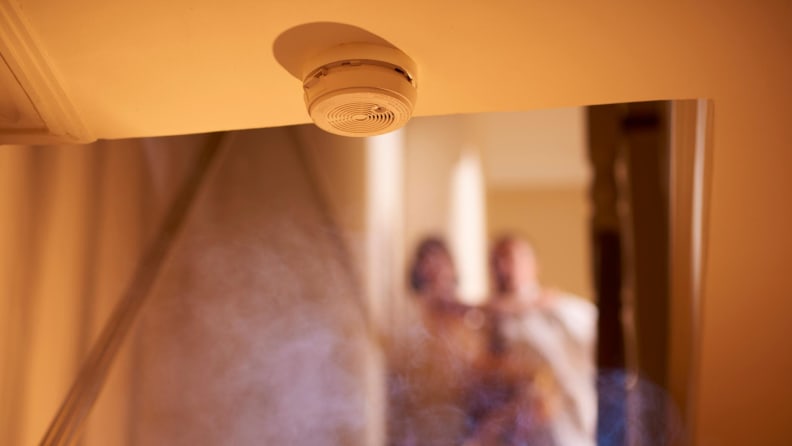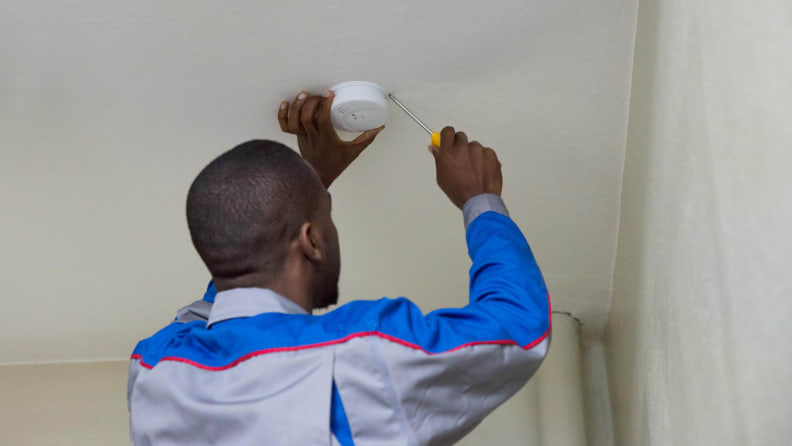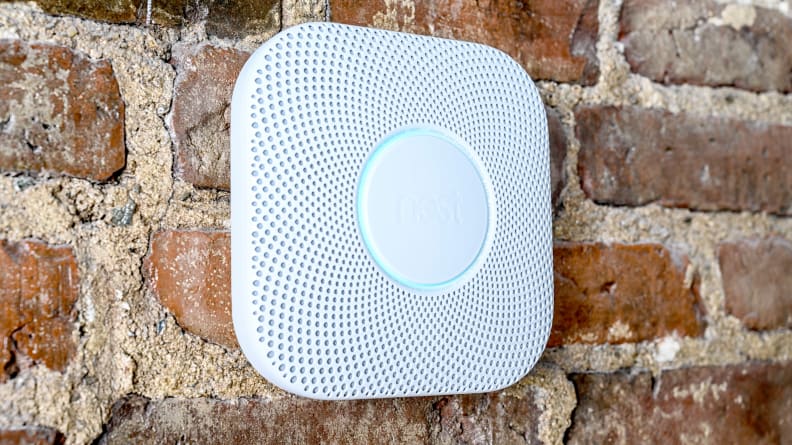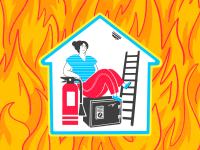PSA: When Daylight Saving Time begins, change your smoke alarm batteries
Changing your clocks? Change your batteries, too.
Recommendations are independently chosen by Reviewed’s editors. Purchases you make through our links may earn us a commission.
Daylight Saving Time (DST)is coming thisSunday, March 13 at 2 a.m.Though we may "lose" an hour of sleep in the morning as our clocks spring forward, it does mean more light at the end of the day toenjoy the great outdoors. As we set our clocks ahead one hour, now is also the perfect time to adjust other household items such as yoursmoke detector.
The“Change Your Clocks, Change Your Batteries” campaigncreated by the National Fire Protection Association (NFPA) encourages homeowners to change their smoke detector batteries whenever they're changing their clocks for DST, equating to twice a year.
Checking and changing your smoke detector batteries is easy to do—the hard part is actually remembering to do so, which is why this handy pairing with Daylight Saving Time is ideal. With DST right around the corner, here's your friendly reminder to change those batteries, along with smoke detector tips and information to keep them properly maintained year-round.
How often should I be replacing my smoke detector batteries anyway?

Depending on the type of batteries used in your smoke detectors, you may need to replace your battery annually at the minimum.
Smoke detectors with non-replaceable, 10-year batteries aredesigned to work for up to 10 years, according to the NFPA. Once you start hearing that dreaded "chirping" noise, signaling that the battery is low, you'll need to replace the entire smoke detector promptly.
For smoke detectors that use any other type of batteries, they'll most likely need a new battery at least once a year—and for those who may need a gentle reminder to check on your smoke detector's batteries, using the beginning and end of Daylight Saving Time is a great way to remember.
When in doubt about when to change the batteries or what kind of batteries to use, the NFPA recommends following the alarm manufacturer's instructions, which may end up being brand- or even model-specific.
How to test your smoke detectors

Take the time to test your smoke detectors regularly.
Smoke detector maintenance is key to protecting you and your family from a potential house fire. Regularly testing your smoke detectors ensures that the batteries and the alarm itself are all working correctly.
All smoke detectors in the home should be tested at least once a month—but don't worry, it's quick and easy to test them. Simply push the "test" button on the exterior alarm and wait for it to respond.
如果你的探测器没有响应,检查棉絮eries to make sure they’re still good. If not, replace them as soon as possible. If this isn’t a battery issue, it may be time for a replacement.
To make sure you're fully covered, you’ll need to check up on all of the detectors in your home on a regular basis.
How to know when it's time to retire your smoke detector

Some smoke detectors will simply need to be replaced, especially after their expiration date of 10 years.
No matter how well an appliance or tech gadget is working, it'll have an expiration date. The same goes for smoke detectors, which the NFPA recommendsreplacing after 10 yearsregardless of their condition.
Along with this information, you can check your alarm's expiration date, which makes it easier to know exactly when it's been 10 years. You can find this by removing the smoke detector from the wall or ceiling and looking for the date on the back.
Our favorite combination smoke and carbon monoxide detector

Our favorite smart smoke and carbon monoxide detector, the Nest Protect, is easy to install and comes with plenty of protective features.
While smoke detectors are historically known for alerting your family of a fire emergency, combination smoke and carbon monoxide detectors (CO) can do even more, keeping your family safe from dangerous CO exposure. Even more, asmartsmoke and carbon monoxide detector can make protecting your family even easier with features like real-time notifications to your phone and voice alerts.
Out of all the smart smoke and carbon monoxide detectors weput to the test, the Nest Protect Smoke & Carbon Monoxide Alarm is our top choice. The fairly-priced alarm uses a split-spectrum sensor to sense both smoldering and fast-burning fires, helping to keep your family safe no matter the fire emergency. It also features intuitive features like push notifications, a night light option, and even a monthly self-test feature.
Get the Google Nest Protect Smoke & Carbon Monoxide Alarm from Amazon for $110.27
The product experts atReviewedhave all your shopping needs covered. Follow Reviewed onFacebook,Twitter,Instagram,TikTok, orFlipboardfor the latest deals, product reviews, and more.
Prices were accurate at the time this article was published but may change over time.







